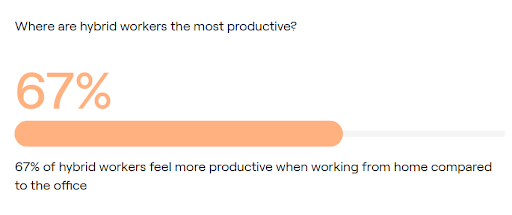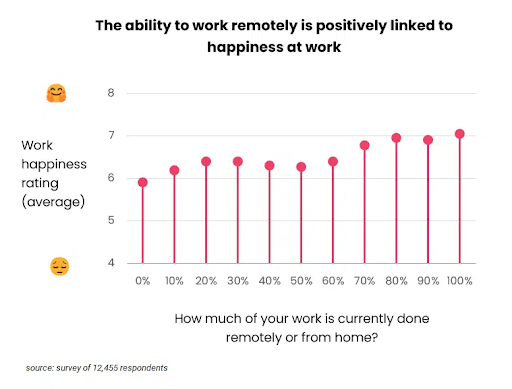
Are you on the fence about changing your business practices to reduce your small business‘s environmental impact, win over more customers, or even get them to pay more for your products?
If so, you’re not the only business owner adopting eco-friendly business practices. Starbucks aims to cut its carbon, water, and waste footprint in half by 2030. Similarly, Patagonia aims to become an environmentally friendly business by becoming carbon neutral as soon as 2025.
But why should you go green?
Well, there are numerous benefits—both environmental and for your business—of green practices. Let’s take a look at them.
7 benefits of going green and creating an eco-friendly business
If you’ve implemented the best practices for sustainable business we outlined in our recent post, How to create a small business sustainability plan, here are the benefits you can reap from them.
1. Improved brand perception
When you do your bit to reduce your environmental impact by implementing sustainable business practices, your brand image gets a boost. In fact, 85 percent of consumers—a major chunk—say their purchasing behaviors have shifted toward more sustainable options (green businesses and sustainable products) in the past five years.
Most consumers are likely to see your brand in a better light when you implement sustainability best practices. And that’s bound to grow your business, considering that 42 percent of consumers in the US are willing to pay more for sustainable options and eco-friendly products.
So, is sustainability good for business? Definitely, the premium paid by consumers can make up for your initial costs.

2. Reduced operational expenses
Say you decide to reduce your carbon footprint by switching your workplace to a remote or hybrid workspace. In addition to increased flexibility and improved work-life balance for your team, moving to a remote work environment can dramatically reduce operating expenses and boost your bottom line.
You save by reducing your office space, utilities, office furniture, maintenance, and so much more.
In addition, there are many affordable tools, like customer relationship management (CRM) and marketing automation, that can increase your office collaboration, improve workflows among your stakeholders, and drastically decrease your use of paper products and office supplies just as INEX did with Act!, an integrated CRM and marketing automation software.
Even if you opt to compensate your employees for setting up their home offices, those expenses tend to be much lower than the overhead of owning or leasing large office spaces.
Take FlexJobs, for instance. This company has operated 100 percent remotely since 2007. Over the years, they’ve saved over $5 million through remote working.
3. A cleaner environment
The most obvious—and positive impact of small business sustainability is a cleaner, pollution-free environment.
You reduce your carbon emissions when your employees don’t have to commute to work daily. Similarly, if you’ve prioritized the use of energy-efficient light bulbs, you’ll consume less electricity, which is mainly generated using coal (35.8 percent of the global power mix) and not renewable energy sources.

Image via Statista
By implementing a recycling program and replacing plastics with biodegradable or recycled materials, you can reduce your contributions to the ever-growing landfills and garbage patches, or marine debris in our oceans to save marine life. And by going digital and paperless, wherever possible, you minimize or eliminate your paper usage, which, otherwise, would end up in landfills and create methane that can harm the environment.
4. Improved productivity
Implementing sustainable measures such as hybrid working in your small business can also augur employee productivity. In fact, 67 percent of hybrid workers feel they’re more productive at home.

Image via Owl Labs
When you provide data management and automation tools to your team, they’ll be able to collaborate better, reduce miscommunication, and quickly execute their tasks, leading to higher productivity.
Case in point: The Scale People Inc. saw a productivity boost of at least 30 percent when its sales team started using Act!. The platform helps them manage the details of over 44,000 contacts.
5. Supporting your local community
One of the most incredible benefits of social responsibility in a sustainable small business is the support that your company will garner when you give back to your local community. It will make your business attractive to consumers who want to support companies that help locals.
This is exactly what you can expect when you start sourcing your raw materials and other services locally. It conveys that you’re willing to work and invest in the local region to improve the social conditions of those living there.
6. Appealing to investors
When you go sustainable, your brand becomes more attractive to investors looking for businesses with ESG (Environmental, Social, and Governance) initiatives. Investors want to be linked to organizations trying to make a difference in the environment.
If your business implements policies for sustainable growth, contributes to the local community, and respects its employees, investors will likely flock to have their names attached to your business. This can give your business the financial impetus it needs to grow.
7. Improved employee satisfaction
Above all, sustainable initiatives can do wonders for your employee satisfaction. By going hybrid or remote for business sustainability, you also make your employees happier.
A study shows remote employees are up to 20 percent happier than their counterparts.

Image via Tracking Happiness
Even if you don’t go remote, your employees will enjoy this sense of working toward a cause, especially if they care about the environment. This can help boost employee morale and job satisfaction.
Similarly, it’ll likely lift their spirits if you’ve undertaken initiatives such as using more natural light and better ventilation. And happier employees could translate to lower attrition rates.

Embrace the benefits of sustainability in your small business
The importance of sustainability in business goes beyond minimizing your environmental impact. It leads to satisfied employees whose productivity and retention levels will rise, and it improves the attractiveness of your brand among investors and the local community.
Better brand perception translates to growing sales. When this is paired with your energy conservation and waste management initiatives, you’ll likely see your expenses drop and profitability rise.
Technology like Act! plays a central role in this transformation by enabling you to go paperless and remote. Try Act! free for 14 days to see how it can help you realize the benefits of sustainability in business.





